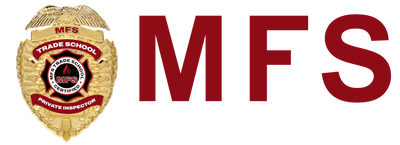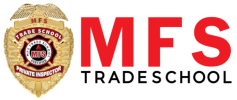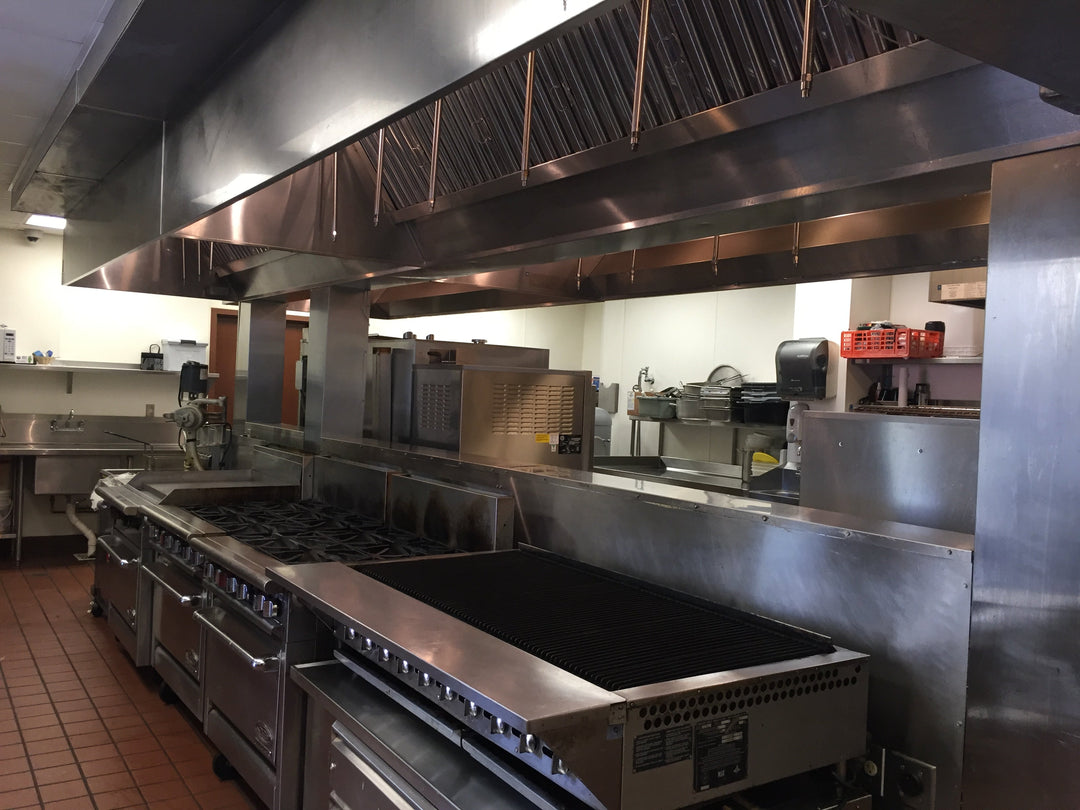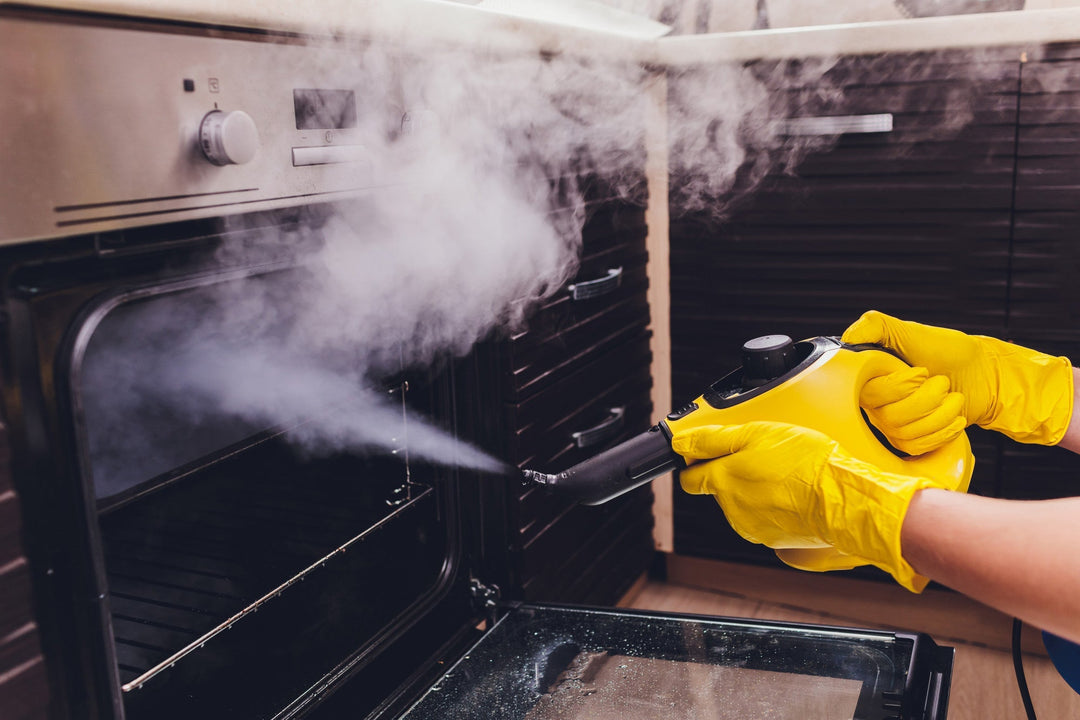Do You Need to Be Certified to Clean Kitchen Hoods? Here's What You Need to Know
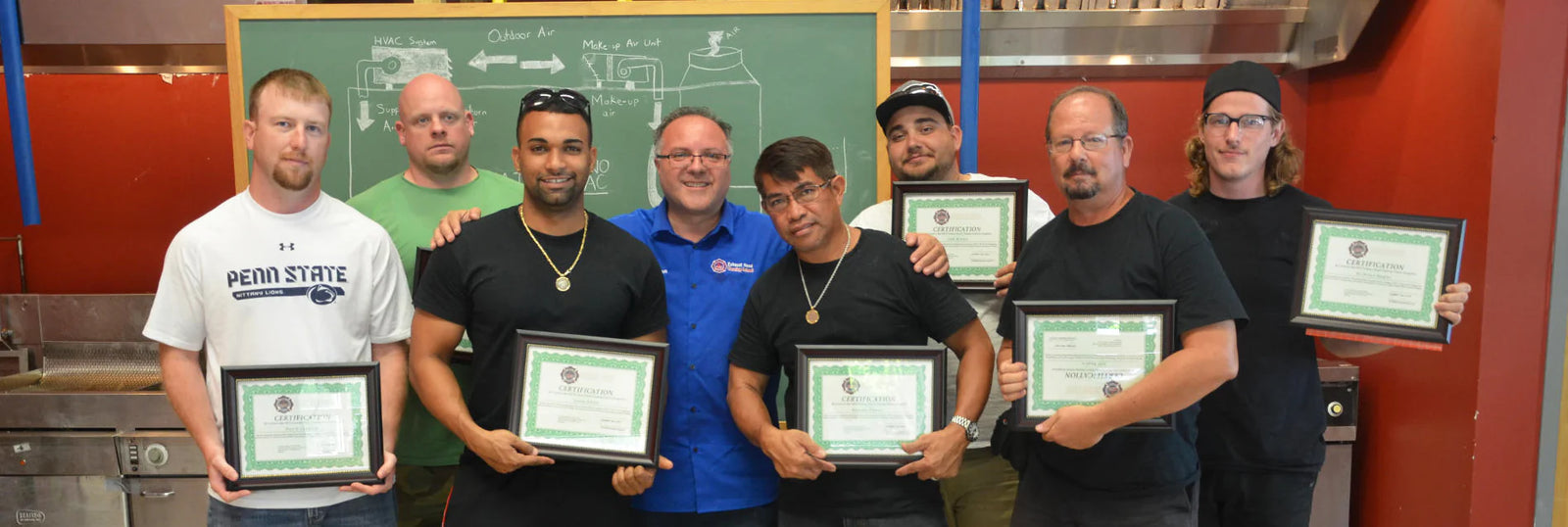
Do You Need Certification for Kitchen Hood Cleaning?
Kitchen exhaust hood cleaning is a crucial service for maintaining fire safety and hygiene in commercial kitchens. Proper cleaning techniques, equipment, and protocols are essential to effectively remove grease buildup and prevent potential hazards.
Certification programs have emerged to train and validate the expertise of hood cleaning professionals, including various professional certificate programs that can enhance your skills. These programs aim to ensure that cleaners adhere to industry standards and best practices for optimal results and compliance with regulations.
For those considering starting a kitchen exhaust hood cleaning business or seeking employment in this field, understanding the certification process is key. Obtaining certification can enhance credibility, marketability, and proficiency in delivering this vital service to clients.
What Does Kitchen Hood Cleaning Certification Entail?
Kitchen hood cleaning certification involves comprehensive training in industry-recognized techniques, safety protocols, and standards. Programs typically cover the requirements outlined in NFPA 96—the Standard for Ventilation Control and Fire Protection of Commercial Cooking Operations—which serves as the guiding framework for hood cleaning best practices.
Certification courses delve into various aspects of the cleaning process, including safety protocols:
-
Grease removal methods: Trainees learn effective strategies for eliminating grease accumulation from hoods, ducts, fans, and other components using specialized tools and cleaning agents.
-
Safety procedures: Participants gain knowledge of essential safety measures, such as proper ventilation, fire suppression systems, and personal protective equipment (PPE) usage, to minimize risks during cleaning operations.
-
Equipment maintenance: Certification programs cover the proper care and upkeep of cleaning tools and equipment to ensure optimal performance and longevity.
-
Regulatory compliance: Trainees develop an understanding of relevant codes, standards, and local regulations governing kitchen exhaust system maintenance to ensure adherence to legal requirements.
Hands-on training is often a critical component of certification programs, allowing participants to apply their knowledge in real-world scenarios under the guidance of experienced instructors. This practical experience helps develop the skills and confidence needed to tackle various cleaning challenges encountered in commercial kitchens.
Online certification courses, such as those offered at MFS Trade School Shop, provide a convenient and flexible option for aspiring hood cleaners to acquire the necessary knowledge and credentials. These comprehensive programs combine self-paced learning modules with interactive resources and support from industry experts to deliver a well-rounded educational experience.
By completing a recognized certification program, hood cleaning professionals demonstrate their commitment to upholding industry standards and providing top-quality services to their clients. Certification instills trust and credibility, setting certified cleaners apart in a competitive market.
Is Kitchen Exhaust Hood Cleaning Certification Required by Law?
Although NFPA 96 outlines the benchmark for maintenance of kitchen exhaust systems, its legal enforcement is not uniform across all regions. Each locality may choose to implement these standards differently, with some jurisdictions mandating strict adherence and others offering more flexibility. Therefore, it's essential for hood cleaning professionals to thoroughly understand the specific regulatory environment of their locality.
Local Jurisdictions and Certification
The determination of certification requirements often rests with Authorities Having Jurisdiction (AHJs). These entities are responsible for interpreting and enforcing fire safety regulations, which can include mandating NFPA 96 compliance. To ensure compliance, individuals looking to enter the hood cleaning industry should proactively consult with local fire marshals and review applicable building codes. In many cases, AHJs may require certification to confirm that professionals possess the expertise needed to effectively mitigate fire risks associated with kitchen exhaust systems.
The Value of Certification Beyond Legal Requirements
In regions where certification is not legally enforced, obtaining it still provides substantial benefits, similar to those offered by online career certificates that equip professionals with essential skills. It serves as a credential that signifies a professional’s dedication to the highest standards of safety and efficiency in hood cleaning. This recognition can be crucial for building credibility with potential clients who prioritize safety and regulatory compliance in their operations.
Additionally, certification can influence insurance considerations. Many insurance providers prefer to work with certified businesses, as this status indicates a reduced risk of fire-related incidents. Furthermore, certification can enhance business opportunities by meeting the requirements of larger clients, such as national restaurant chains and public institutions, that often stipulate certification as a condition of their service contracts.
What Are the Benefits of Becoming a Certified Hood Cleaner?
Achieving certification in kitchen hood cleaning elevates a professional’s standing in the industry. It signifies a thorough understanding of safety protocols and compliance with industry standards, assuring clients of the quality and reliability of your services. This credential is a powerful endorsement that you possess the skills necessary to deliver effective and safe cleaning practices.
Expanding Professional Horizons
Certification equips you with a competitive edge, distinguishing your services in a market where clients increasingly demand proof of expertise. This recognition not only enhances your marketability but also positions you as a preferred choice for contracts with high-profile clients, including large-scale commercial kitchens and institutional facilities. Certified cleaners often find themselves better positioned to secure these opportunities, thereby expanding their client base and enhancing their business prospects.
Cost Efficiency and Insurance Advantages
Certification can also lead to cost efficiencies, particularly in the realm of insurance. Insurance companies often view certified professionals as lower risk, which can translate into reduced premiums and more favorable policy terms. By aligning your business with the expectations of insurers, you can ensure better protection and financial savings. Additionally, certification's impact on client confidence and satisfaction can drive repeat business and referrals, contributing to sustainable growth and profitability.
How Much Does Hood Cleaning Certification Cost?
The cost of obtaining hood cleaning certification can vary widely depending on the organization that offers the program and the depth of training provided, such as those found in SDSU certificate programs. Typically, expenses range from a few hundred to a couple thousand dollars. This reflects the quality of educational resources, instructor expertise, and the level of hands-on exercises included in the course.
Components of Certification Costs
Certification programs generally include several primary elements:
-
Educational Resources: Participants receive comprehensive learning materials such as guides, manuals, and online modules that cover essential topics like safety protocols, effective cleaning methods, and regulatory guidelines.
-
Practical Sessions: These are critical for applying theoretical knowledge, offering real-world simulations that help trainees practice skills in a controlled environment.
-
Final Assessment: The certification exam evaluates the participant’s understanding and ability to apply the knowledge gained, ensuring that they meet the professional standards required for certification.
Long-Term Financial Benefits
Investing in certification can offer substantial returns over time. Certified professionals often attract more clients due to their demonstrated expertise and adherence to industry standards, leading to increased earning potential. Additionally, the credibility gained through certification can enhance business prospects, making it easier to secure contracts with higher-profile clients. The initial investment in a reputable certification program is often offset by these expanded opportunities and the potential for greater revenue.
Choosing a program recognized for its adherence to industry standards is crucial. Such programs not only provide essential skills and knowledge but also ensure that professionals are well-regarded by industry regulators and insurance providers, thus securing the trust of potential clients.
Next Steps for Starting Your Own Hood Cleaning Business
Embarking on a journey to establish a hood cleaning business involves several strategic steps that ensure your operations align with industry standards and client expectations. Begin by identifying educational resources that provide a deep dive into effective cleaning methodologies and safety practices specific to the industry, including UCLA Extension certificate programs that can enhance your knowledge.
Grasping Industry Standards and Local Regulations
Understanding the key principles outlined in recognized industry standards is essential for any hood cleaning business. These guidelines ensure that your services adhere to safety and quality benchmarks critical to maintaining a safe kitchen environment. Additionally, it is crucial to stay informed about local regulatory requirements, which can differ significantly from one jurisdiction to another. Regular engagement with local authorities will help you navigate these requirements, ensuring that your business remains compliant and trustworthy in the eyes of your clients.
Strategic Investment in Resources and Planning
To excel in hood cleaning, it is vital to allocate resources towards acquiring effective cleaning tools and supplies. The right equipment not only improves the efficiency of your operations but also ensures safety and reliability in delivering services. Focus on tools that are known for their effectiveness and adherence to professional standards.
Developing a comprehensive business plan and marketing strategy plays a critical role in differentiating your services in the competitive market. Your plan should clearly articulate your business objectives, emphasizing the quality and reliability that set your services apart. When marketing, highlight your commitment to excellence and adherence to industry standards, which will appeal to clients who prioritize quality and safety in their service providers.
By taking these steps, you position your business to meet the demands of the industry while building a foundation for long-term success and adaptability in the field of commercial kitchen maintenance.
If you're ready to take the next step in your hood cleaning career, we're here to support you. Our comprehensive certification program at MFS Trade School Shop equips you with the knowledge, skills, and hands-on experience needed to excel in this growing industry.
Request More Information today and let us help you turn your passion into a thriving business.
